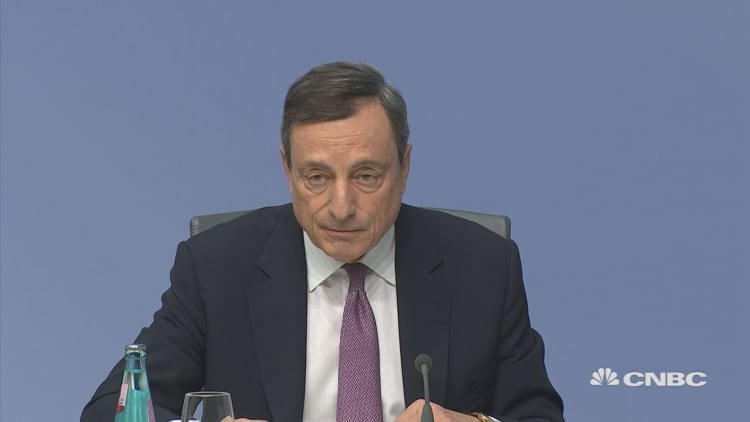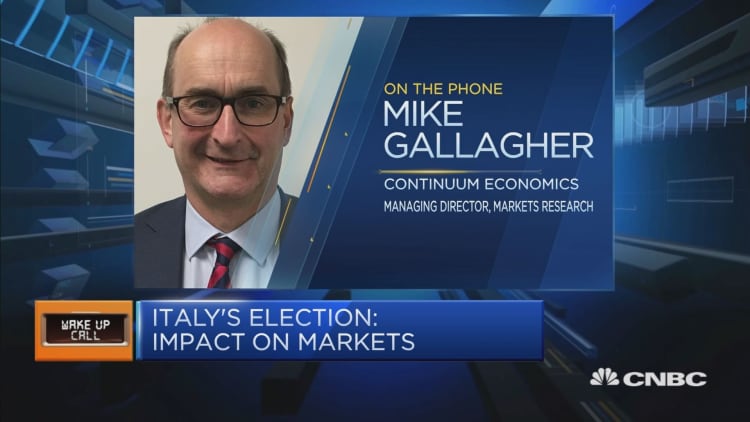The euro could hit $1.30 in the next 12 months as the European Central Bank (ECB) unwinds its stimulus, economic growth continues and political risks dissipate further, analysts told CNBC.
Markets forecast a gradual reduction in the ECB's quantitative program as inflation expectations in the region increase. ECB minutes released Thursday indicated once more that inflation, the most important economic indicator at the central bank, is picking up at a faster pace. This has fueled calls that the need for a significant monetary stimulus is over.
"As QE (quantitative easing) moves towards the end, markets focus more on rate hikes," Ricardo Garcia, chief euro zone economist at UBS, said when asked why the euro is set to appreciate over the coming months.
Traditionally, interest rates are interpreted as a factor that pushes currencies upwards as they tend to bring higher inflows to the region.
"We think that a gradual increase to 1.30 against the USD over 12 months is manageable for the euro zone economy, especially as the global economy is strong," Garcia added.

The euro, which in the aftermath of January's meeting rose to a new three-year high, started the year surging against other currencies, including the U.S. dollar, as the region's economy improved and political risks dissipated.
A stronger euro could become a problem for the ECB, whose main target is keeping prices stable. An appreciation in the currency could hurt the bank's inflation targets and prompt changes to its monetary policy.
However, some economists believe that given the economic growth in the region — which the ECB foresees at 2.3 percent of gross domestic product (GDP) in 2018 — consumers will be able to sustain the appreciation in the currency and the ECB won't be forced to stimulate the economy.
Stephen Gallo, head of forex strategy at Bank of Montreal, who also foresees a $1.30 for the euro in the next 12 months, told CNBC that the Italian election poses a potential short-term drag on the currency, but that will evaporate once a government is in place.
"Over the very near-term, positioning considerations and hedging flows ahead of the Italian vote argue for a flat-to-lower profile for the EUR," he said via email. "Nevertheless, our view is that, in a weak USD environment, EUR/USD will trade up to 1.25 in three months after Italian election risks are cleared and the ECB shifts its QE guidance on March 8."

The most recent ECB minutes indicated that policymakers could revisit their monetary policy stance "early this year." At the January meeting, some members voiced the need to adjust monetary policy to the direction of inflation, but they agreed that it was "premature" to do so last month.
Nonetheless, the minutes also showed that the central bank is keeping an eye on the currency.
"There was broad agreement among members to convey the Governing Council's concerns about the recent volatility in the euro exchange rate, which represented a source of uncertainty that had to be monitored with respect to its implications for the medium-term outlook for price stability," the minutes said.


